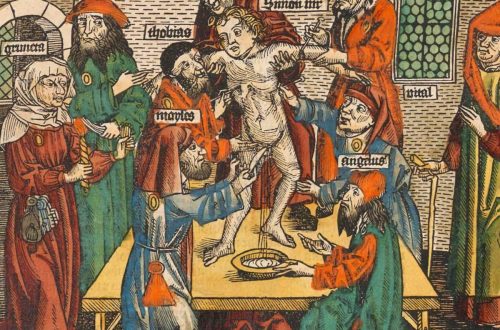Karl Pfeifer interviewed Yoav Gelber, a professor of history at the University of Haifa and formerly a visiting professor at The University of Texas at Austin.
Karl Pfeifer: In your seminal book Historia, Sikaron veTaamula published in Tel Aviv in 2007 (History, Memory and Propaganda, The Historical Discipline at the Beginning of the 21st Century) you distinguish between serious historians who base their work on facts, documents and oral history, and others who are motivated by ideology and know already beforehand the results of their research.
Yoav Gelber: This should be seen in the framework of postmodernism, where opinion replaces knowledge in intellectual life. This is at least partly an outcome of the communication revolution. People always had opinions. But who cared and who knew about their opinions? Today everyone has the possibility to express his opinion in blogs, opinion columns, talkbacks, Facebook, social networks and so on. And many of them have hardly any knowledge of facts and reality. This is a process that also has infiltrated history.
K.P.: Especially regarding the historiography of the Israel-Palestinian conflict?
Y.G.: No, this is a general phenomenon and came to Israel late.
K.P.: Why is the market flooded with non-serious books about Jews, Israel and the conflict, for example the book of Shlomo Sand about the invention of the Jewish people? Sand is a specialist on French cinema and modern French history. What does he know about the Jewish people?
Y.G.: Not much, but he has an opinion.
K.P.: But how do you explain that his book is translated into I do not know in how many languages, also into German, by a serious editor, while your book – which is factual, based on facts and a serious scientific work – is not translated, nor can I find books of Benny Morris, Efraim Karsh, and of many other historians in German language?
Y.G.: My book on 1948 is being translated into French.
K.P.: This is good news. Is it also translated into Arabic?
Y.G.: I believe it has been translated into Arabic. But I don’t know. They don’t pay royalties and don’t respect copyrights. Many Arab historians relate to it. Probably they have read the English version.
But let’s go back to your example, which is a good one. Sand and his like are hardly noticed in Israel and are very successful abroad. What is the basis for their success? They write provocatively, and I do not talk about their ideology. I like to read what they write, and they write the right thing according to what a certain part of the audience believes. But many people, Israelis included, are mainly impressed by the style, the language, the originality, the provocations in the book. Historians appreciate a book according to its solidity, its sources, and its innovative thinking. Sand did not innovate anything. His arguments are old. But for the non-professional audience it is an attractive book. Historians ignore it. And the same goes for others.
K.P.: We talked a few years ago about the amazing fact that some Israeli academicians who get their salaries from their universities or institutions call for an international boycott of their universities…
Y.G.: Most of them do not get their salary anymore. Ilan Pappe is in Exeter…
K.P.: But Neve Gordon in Beersheba…
Y.G.: His department will be probably closed. The Council for Higher Education called for a reform of the department. They failed to do that, so it will be probably closed, they were told not to accept any new students.
K.P.: In Austria a professor who would ask to boycott his university would not be tolerated…
Y.G.: It would not be tolerated anywhere in the world. I do not know what happened in South Africa during the sixties and seventies, because the idea had its origin there. There was an economic boycott, but the universities were not boycotted.
K.P.: In Haaretz I’ve read something very strange. It was stated that an opinion research institute had determined that most Israelis would like to have apartheid installed. Then it turned out that Gideon Levy had to apologise for the story, because it wasn’t true.
Y.G.: I am not surprised.
K.P.: But it is absolutely unethical for a journalist to behave in such a way.
Y.G.: You look for ethical behaviour of journalists in Israel?
K.P.: Yes, I am looking for ethics in journalism everywhere. But let me ask you: How come the war 1947-1949 is used and misused especially regarding the alleged plan to expel Arabs. I participated as soldier in that war myself and served in the Negev division and I do not remember a general order to expel Arabs. We expelled them where they were fighting us.
Y.G.: Also when their village could be a base for the Egyptian army…
K.P.: Yes. I fought in the Battle for Brer. They were shooting at us, planting mines. I was asked many years ago by a Trotskyite if I feel ashamed and I said no.
Y.G.: It was a war…
K.P.: Yes, it was a war and in Brer there were fascist mercenaries from Bosnia fighting us. In other places in the Negev we were fighting against former German SS men and Wehrmacht soldiers.
Y.G.: The Palestinians and their friends try to convey that the conflict began in 1948…
K.P.: No, it began earlier.
Y.G.: OK. As they describe it, the Jews suffered the Holocaust, the world wanted to compensate them, so the United Nations gave them a country at the expense of the Palestinians…
K.P.: That isn’t right!
Y.G.: Of course it is not right, but this is how they brainwash the world…
K.P.: Yes, but how?
Y.G.: They say Zionism is colonialist movement. Zionism is a European national movement which emerged a little later than most other European national movements. And it was chronologically the last of the Jewish responses to the existential modern “Jewish Question”, which was asked since the French revolution and the creation of national states. If you Jews are part of the nation, why are you different? And if you are different, what are you doing among the nations? Initially mainstream Jews stated that they did not see or wanted to have any differences, except maybe a religious belief which became insignificant in a secular world. And after hundred years of emancipation and assimilation they found themselves much better of economically and legally, yet politically in the same situation, with modern anti-Semitism as a reaction to Jewish emancipation and assimilation. In Western Europe their emancipation was successful, in Eastern Europe there was no chance of it and nobody to assimilate to, so there were few options: either to ignore modernity and stick to tradition, that is, the Haredi way of life. Or to try to correct the entire world with socialism and communism, or as a possibility open only to very few, to try to assimilate into the East European nation just the same. The fourth solution was emigration. The fifth and the last solution was the “national solution”. And within the “national solution” it took time for Zionism to become the dominant trend. There was the Dubnow Autonomism; Dubnow did not believe that it would be possible to relocate the Jews from Europe to the Third World. No one would go there. So Zionism is a European phenomenon. Even the cultural revival of Hebrew began in Europe before Zionism. It was adopted by Zionism but not invented by it.
K.P.: You speak about Haskala…
Y.G.: Yes, so they want to deny the hundred years of Jewish history before the Jewish state by pointing to 1948 as start of the conflict. But the conflict started really in 1917, with the occupation of Palestine by the British army. Before that it was not a national conflict. After that point it became a conflict of two national movements. I disagree with those who say there was no Arab national movement. There was.
K.P.: Was history determined? Some say the Arabs had to do what they did, they could not have made a compromise with the Jews, and did not have any choices?
Y.G.: Of course they could have made a compromise. There were choices. King Abdullah was ready for a compromise. The Palestinians were different, they could have compromised for partition, yet refused, because they believed their cause to be just, and therefore they objected to partition.
The question is not who is right on his side in this conflict, because each side has reasons to believe it is just.
K.P.: How about colonialism? The accusation that “Zionism is colonialism” is constantly repeated. But colonialism means importing capital to exploit cheap labour and export raw material.
Y.G.: No, this is imperialism. There is a common denominator with colonialism which cannot be denied. Colonialism is a phenomenon of emigration and settlement, for example USA, New Zealand, Australia, Canada, and South America.
K.P.: So why is Israel constantly accused?
Y.G.: Colonialism did not begin with the West. There was Russian colonialism in Central Asia and the Far East, Siberia; we had Turk colonialism in the Balkans, in the Caucasus, in Minor Asia, Central Asia. We had Arab colonialism from the Arab peninsula in Iraq, Syria, Palestine, Egypt and North Africa, colonialism is not a western invention. Today they speak only about western colonialism.
There is a common denominator: Zionism is a movement of emigration and during part of the period of British mandate it was supported by a foreign power, but for different reasons settlers were usually supported by imperialists. There are several basic differences because the settlers were not British. Here the similarity ends and the differences begin. It begins with the fact that the Jews did not come to Palestine armed in order to conquer the country. And the build-up of Jewish military capacity ensued in response to Arab attacks and not in order to attack the Arabs. This is a basic difference. Then all colonialist movements were movements of emigration from Europe to countries rich in natural resources. In Palestine there were, as you said, no such resources.
Until then Palestine was considered a country of emigration and not immigration. And many Jews and Arabs emigrated from Palestine to the USA, Australia, and South America at the end of the 19th century. The Jewish community in Argentina originated with Palestinian and Syrian Jews who moved there, and many Christians from Ramallah emigrated to the USA concurrently. Edward Said’s father left for the United States at the beginning of the 20th century and returned to Egypt and not to Palestine, with Edward Said being born in Palestine by chance because his family visited relatives in Jerusalem for a few weeks.
No colonialist movement severed its cultural other ties or affiliations with the mother country.
K.P.: Jews had no other mother country.
Y.G.: They severed their connections. The Jews established a new culture and a new language. Something that did not happen when colonialists settled. When you say the word kibbush (occupation) in Hebrew its primary and first meanings were Kibbush Avoda, the occupation of Labour and Kibbush Haschmama, occupation of the desert. Gdud haAvoda was a political expression for a Left group which became a military term, gdud, only many years later. All the comparisons of Zionism with colonialism are nonsense.
K.P.: Yes, but a very popular nonsense in some quarters.
Y.G.: It is popular because Jews are not popular. What is the difference between the traditional ancient evil Jew hatred and modern anti-Semitism?
K.P.: The modern one is directed against the collective Jew, against the Jewish state?
Y.G.: The Jews were hated in the pagan world and during the Middle Ages because they were different, as the “other”. Modern antisemitism is there because the Jews try to be like all the others. Anti-Zionism is a reaction because the Jews as a collective want to be like all the others, to have their own state.
K.P.: But with a higher moral aim.
Y.G.: Without that it could not have survived the last hundred years.


